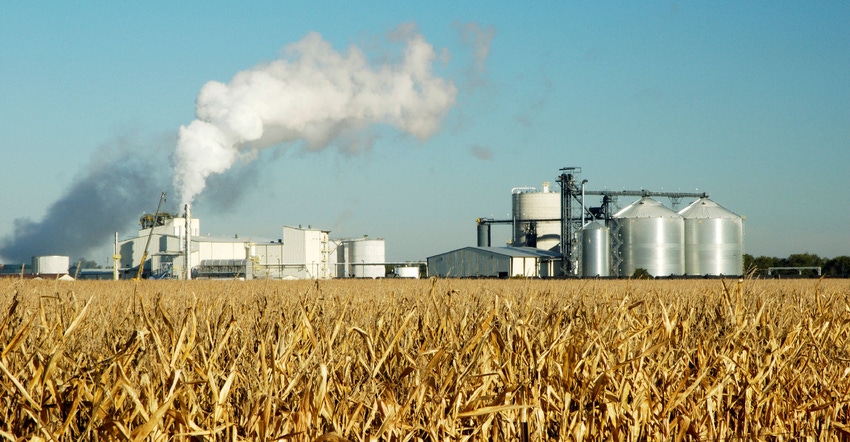
Earlier this fall, rumors circulated that the Environmental Protection Agency was considering retroactively reducing the 2020 Renewable Volume Obligations, or the mandated blending requirements under the Renewable Fuel Standard. A new bipartisan bill in the House — the Defend the Blend Act — would prohibit EPA from reducing the minimum applicable volume of biofuels into transportation fuel once renewable volume obligations are finalized for any given year including rom retroactively reducing 2020 RVO levels.
"Rumors abound that the EPA is going to retroactively reduce biofuel blending requirements for 2020 — before they’ve even set levels for 2021 and 2022; this would be detrimental to Iowa’s biofuel industry. My bipartisan bill will hold the administration accountable for maintaining the integrity of the Renewable Fuel Standard and give biofuel and ethanol producers the certainty they deserve," says Rep. Ashley Hinson, R-Iowa, a lead sponsor of the bill.
"If these rumors are true, this would be backpaddling on the president's commitments (to) uphold the RFS,” Growth Energy CEO Emily Skor recently testified before the House Agriculture Committee. The EPA has never retroactively adjusted previously finalized RVOs.
Another lead sponsor of the bill, Rep. Angie Craig, D-Minn., says the integrity of the RFS is critical for family farmers and rural communities.
“The bipartisan Defend the Blend Act will make it very clear to this administration and all future administrations: retroactive changes to Renewable Volume Obligations that benefit the fossil fuel industry have no place in the RFS. We must provide certainty for family farmers and the biofuels industry, not instability.”
Additional lead sponsors of the bill include Rep. Rodney Davis, R-Ill., and Rep. Ron Kind, D-Wisc. Other original cosponsors include Reps. Dusty Johnson, R-S.D., Adrian Smith, R-Neb., Jeff Fortenberry, R-Neb., Mariannette Miller-Meeks, R-Iowa, Mike Bost, R-Ill., Randy Feenstra, R-Iowa, Cindy Axne, D-Iowa, Jim Baird, R-Ind., Michelle Fischbach, R-Minn., Jake LaTurner, R-Kan., and Darin LaHood, R-Ill.
This legislation has been endorsed by the American Farm Bureau, Growth Energy, POET, ADM, Renewable Fuel Association, National Corn Growers Association, National Biodiesel Board, Green Plains, National Farmers Union, Iowa Farm Bureau, Iowa Renewable Fuel Association and Iowa Soybean Association.
Geoff Cooper, RFA president and CEO, says, “Retroactively slashing renewable volume obligations long after they have been set would throw the RFS program into turmoil and reward a small group of defiant oil refiners for their bad behavior. RFA strongly supports this bill because it would prevent refiners from rigging the game and it would keep EPA from moving the goalposts.”
Skor says the legislation would offer more certainty in the marketplace, especially as the industry awaits the 2021 and 2022 RVOs from EPA,” says Skor. “The Renewable Fuel Standard was put into place to blend more low-carbon biofuels into our nation’s transportation fuel supply and includes a built-in mechanism that adjusts for any changes in fuel demand. Retroactively changing RVO levels is completely unwarranted. It is unnecessary, adds uncertainty to the marketplace, and far exceeds EPA’s legal authority.”
Chris Edgington, president of the National Corn Growers Association, says, “The purpose of the RFS is to move biofuel blending forward, not revisit the past and reward the use of more oil instead of cleaner renewables like ethanol. When it comes to lowering fuel prices and cutting emissions, farmers are a big part of the solution. We count on a strong RFS to help support use of ethanol.”
“If the EPA lowers previously set rules, it will destroy demand for biodiesel and renewable diesel, hobble small biofuel producers, and undercut the nation’s goals to create jobs and a cleaner environment,” says Kurt Kovarik, National Biodiesel Board’s vice president of federal affairs.
About the Author(s)
You May Also Like






